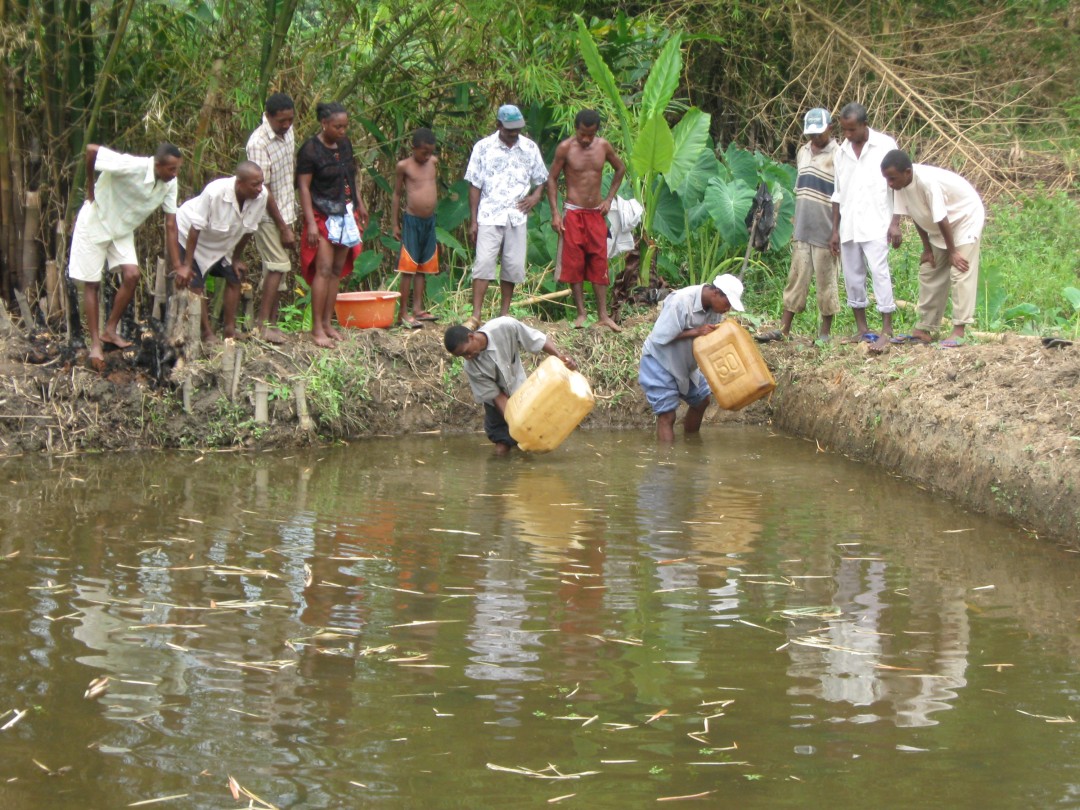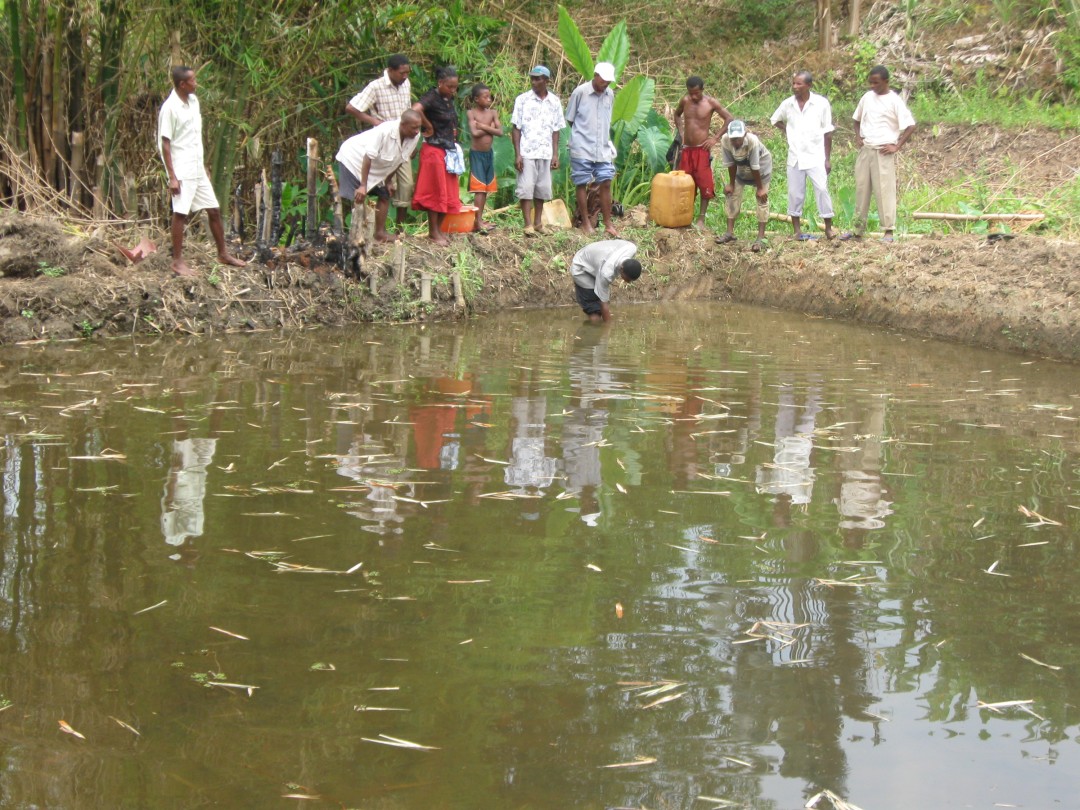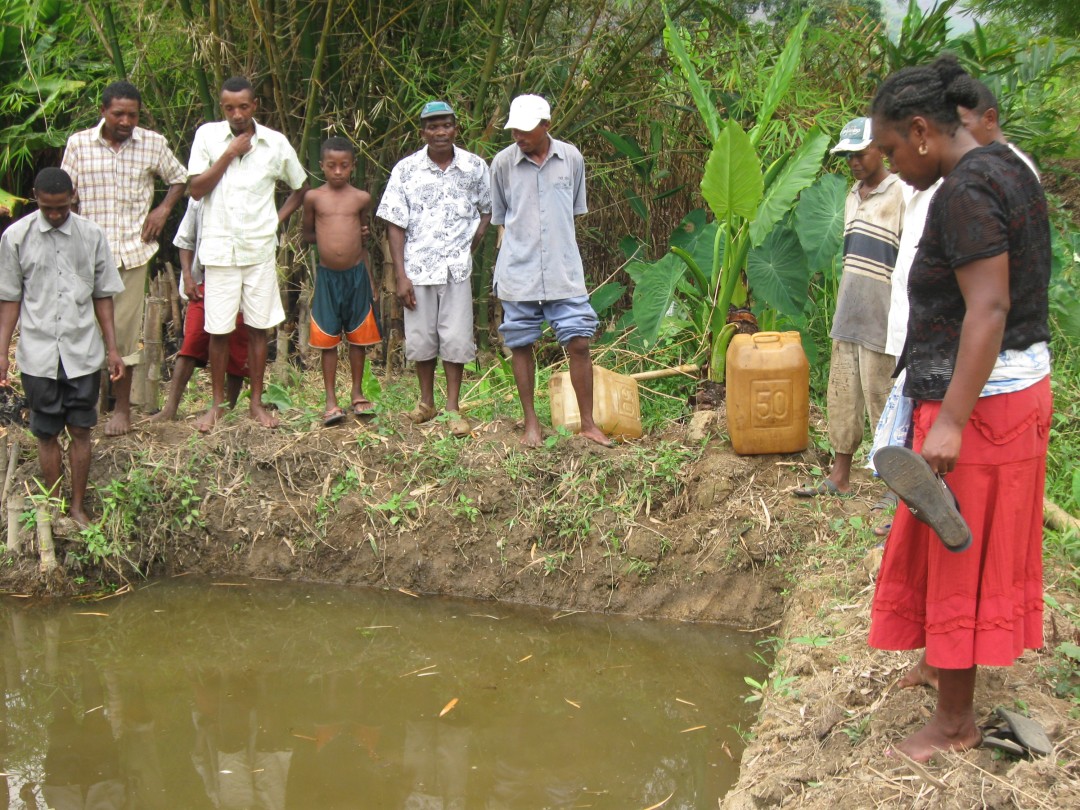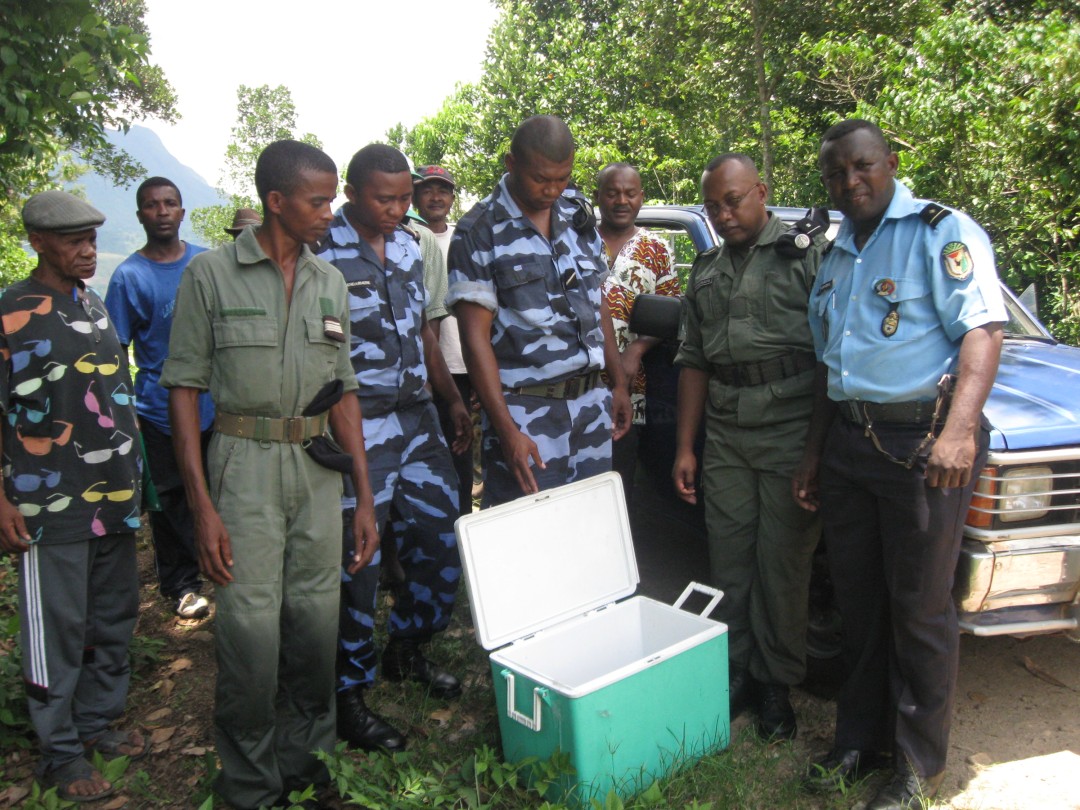Protecting fish farming
The project aimed to sustainably protect endemic fish species of the endangered Cichlidae family and promote income-generating activities. The project covered three regions of Madagascar and had three objectives: to better understand the environment of endemic fish; to empower local communities to protect native fish species and their natural habitats; to sustainably develop economic activities that provide food and generate income, whilst respecting natural resources.
In all three regions, both indigenous and endemic fish species were sustainably preserved. The size of fish increased significantly and had a positive impact on income-generation for producer communities with fish farms, and on the fishing community as a whole. Local communities increased their knowledge of endangered species and their habitat, and took responsibility for protecting endemic fish species. The growing demand for fish led APMM and its partners to facilitate the link between local producers supervised by the project and local market operators offering attractive prices. Fish farmers today, sell their entire fish production. The APMM and its partners officially launched, in June 2014, the sale of Paratilapia betsileanus as a value added product, benefitting the local communities.
Association of Mountain People of the World (APMM) is an international organisation born out of the World Mountain Forum held at UNESCO in June 2000. It acts as the voice of mountain people and fights for equitable and sustainable development, to ensure the continuity of the mountain identity. It also supports and develops the local initiatives of its members and local partners.
Type
Environment / Community DevelopmentDuration
October 2010 - March 2012Location
Sava, Haute Marsiatra and Sud Ouest regions / MadagascarWith whom
Association of Mountain People of the World (AMPW)
Website






Madagascar
Population
25.6 million (2017)
Per Capita Income
USD 400/year (2017)
Poverty rate *
71% (2012)
Literacy rate
72% (2016)
Human Development Index
161st out of 189 countries (2018)
The political instability affecting Madagascar since 2009 has undermined government institutional capacity, economic growth and development efforts. Its education, health, nutrition and water access outcomes are among the poorest in the world. The poverty rate has sharply increased since 2009, with 90% of the population living below the international poverty line. Almost half of all children under five are chronically malnourished. In addition, the country is particularly vulnerable to natural disasters, including cyclones, droughts and floods. It is also faced with the challenge of preserving its unique environment and biodiversity of global significance.
Sources: World Food Program, UNICEF, World Bank, 2016 Human Development Report, Human Development Indices and Indicators (2018 Statistical Update)
*The percentage of the population living below the national poverty line.